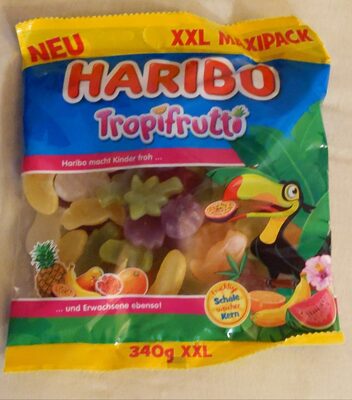
Barcode: 4001686011263
Tropifrutti
DOUBTFUL
📝 Reason: Certain ingredients have disputed status among Islamic scholars. Their acceptability may vary by school of thought and regional certification standards.
🏷️ Category: Snacks, Sweet Snacks, Confectioneries, Candies, Gummi Candies
📄 Certificates: Green Dot, Made In The Eu
Ingredients:
Details
Understanding the Halal Status of Tropifrutti
Tropifrutti is a popular confectionery that tempts consumers with its delightful taste, but questions about its Halal status often arise. The current Halal certification for Tropifrutti is considered DOUBTFUL. This uncertainty stems from the presence of ingredients like gelatine, which has a disputed status among Islamic scholars. In this article, we will delve deeper into the specifics of Tropifrutti’s ingredients and their implications for Halal consumers.
Ingredients Breakdown
Tropifrutti’s ingredients list is diverse and includes:
- Sugar
- Glucose syrup (water)
- Gelatine
- Citric acid (acidifying agent)
- Sunflower oil
- Fruit and plant concentrates
- Aroma
- Beeswax (coating agent)
- Caramel syrup
Categorizing Each Ingredient’s Halal Status
Understanding each ingredient’s Halal status is essential. Here’s a summary based on the E-numbers and general acceptability:
- Sugar – Permissible in Islam.
- Glucose Syrup (water) – Permissible in Islam.
- Gelatine – The status is uncertain as it often depends on whether it’s sourced from Halal animals or not. Consumers are advised to check for a Halal logo.
- Citric Acid – Generally accepted as permissible.
- Sunflower Oil – Free from concerns regarding Halal compliance.
- Fruit and Plant Concentrates (e.g., safflower, spirulina, apple, carrot, blueberry, elderberry) – All are considered Halal as they originate from natural sources unless tainted in the production process.
- Aroma – Typically permissible, subject to processing standards.
- Beeswax (white and yellow) – Permissible in Islamic dietary laws.
- Caramel Syrup – Permissible unless it contains non-Halal additives.
Understanding E-numbers and Certifications
The term ‘E-number’ refers to a system used throughout the European Union to identify food additives. While Tropifrutti does not have specific E-numbers listed, the ingredients as highlighted share common Halal understandings. Here’s a closer look at each:
- Gelatine: This ingredient is highly scrutinized. Many gelatines on the market are derived from pork, which is not permissible. The best practice remains to always opt for gelatine that has a certified Halal logo.
- Fruit and Plant Concentrates: Fruits present in Tropifrutti like apple, carrot, blueberry, and mango are traditionally consumed across Muslim communities and are confirmed Halal based on various Islamic dietary laws.
- Beeswax: Another element frequently used in coating candies; beeswax is permissible as it does not conflict with Islamic dietary guidelines.
Final Thoughts on Certification
Even though Tropifrutti carries labels like the Green Dot and is made within the EU, these certifications alone do not imply Halal compliance unless explicitly stated. The varied opinions concerning some ingredients mean that individual practices may vary significantly. As such, personal research or consulting with local Islamic figures can enhance understanding.
Conclusion
In conclusion, while many ingredients in Tropifrutti are permissible, the inclusion of gelatine introduces uncertainty. Individuals wishing to maintain a Halal diet are advised to approach Tropifrutti with caution unless they can confirm specific sourcing and certification related to the gelatine. Always check for verified Halal certifications when selecting snacks. This ensures adherence to Islamic dietary laws.
